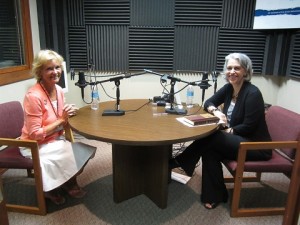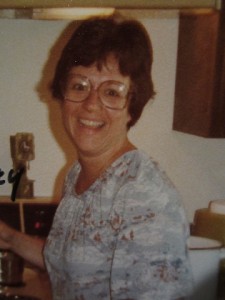My daughter Linnea is in Michigan with me this week, husband Adam, 3 year old Skylar, 2 year old Micah, and 4 month old Autumn. Having children around enlivens the rest of us. Their enthusiasm for life is contagious, even the way they hit the “go” switch the minute they come to consciousness each morning and keep going till they’re ready to drop.
This afternoon as Skylar and Micah napped, Autumn didn’t, so since I was babysitting, this little girl and I had some one-on-one time. We unloaded the dishwasher together, picked up toys, played peek-a-boo, took a stroller ride, and sat in a rocker. As we cuddled there, she fell asleep in my arms, melting into a limp bundle of pudgy beauty.
I couldn’t help but study her sweet face the whole time she slept, marveling at how perfectly she is put together. Of course no one is perfect, but looking at her today, she sure did seem to be.
Looks can be deceiving, though. In Autumn’s short life she’s already demonstrated enough me-first episodes (especially during the night!) to convince us she isn’t perfect. But then again, we’re not surprised.
“Welcome to an imperfect world, little one.” (She’ll fit right in.)
Although the odds for perfection in this world are against us, life didn’t start out that way. Eden was flawless, and earth’s first citizens, Adam and Eve, probably qualified as perfect. For how long, we don’t know. Maybe an eon. Maybe 10 minutes. It certainly wasn’t God’s fault they threw perfection overboard for a blemished existence. They just didn’t carefully ponder the consequences.
Before we come down too hard on them, though, we have to admit we do the same thing. God sets out guidelines for us that have perfection written into them, just as he did for Adam and Eve. We then tweak them to our liking and step in a compromised direction without seriously considering the consequences. When we find ourselves in a mess, we turn back toward God and say, “How could you let this happen to me?”
Such an accusation is almost comical.
Lest we despair, though, he lets us know a time is coming when this unruly tug-of-war within us will end, because perfection will be part of our everyday lives. He says in 1 Corinthians 13, “When the perfect comes…” (v. 10) On that day, Adam and Eve will experience a déjà vu moment, having lived it once already, but the rest of us will be delightfully shocked when it happens. And it will, because God said so. He also said, “My way is perfect, and all of my promises prove true.” (2 Samuel 22:31)
So, what about baby Autumn? In my humble grandma opinion, she couldn’t be any more perfect. But when true perfection comes, it sure will be nice to have her sleeping through the night.
“The law of the Lord is perfect,reviving the soul.” (Psalm 19:7)







